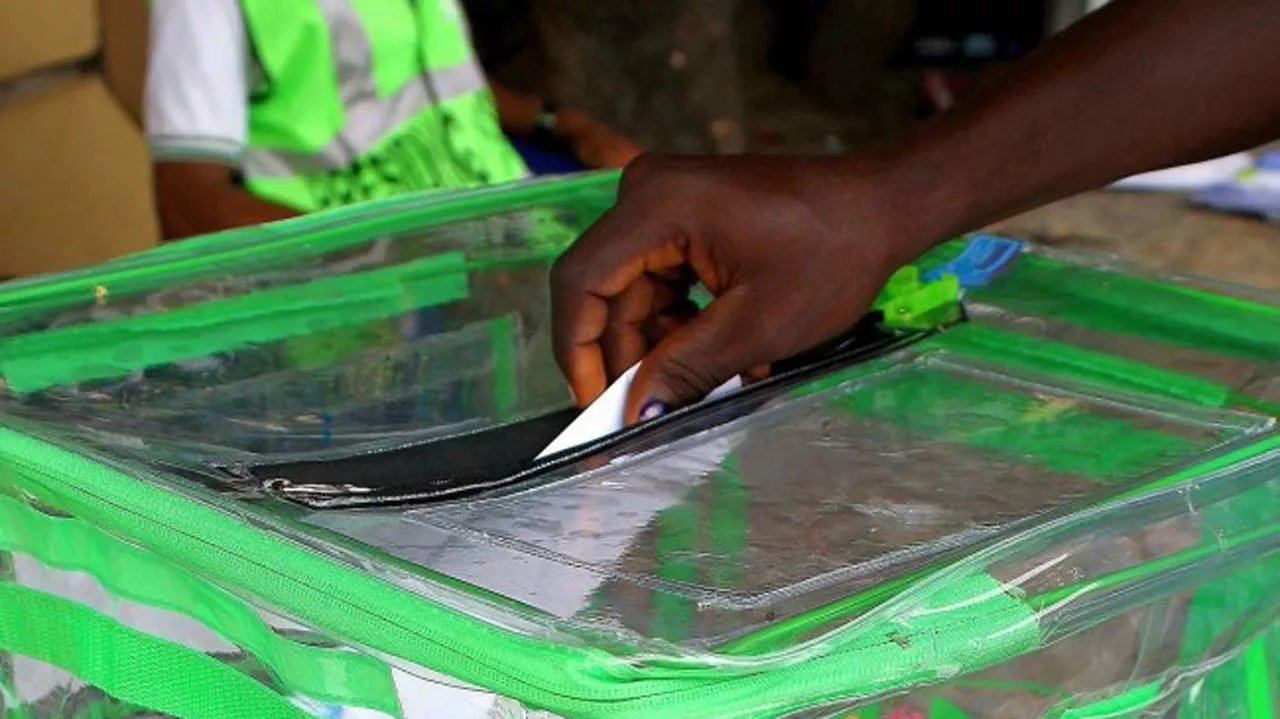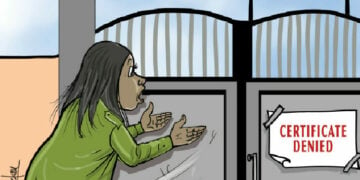The general election to bring in a new set of leaders to administer Nigeria, Africa’s largest democracy will take place on February 25 and March 11, 2023. The elections are thus a few weeks away.
The people are already in election mode. Leading political parties whose presidential candidates are considered frontrunners include the incumbent All Progressives Congress (APC), the Peoples Democratic Party, (PDP), the Labour Party (LP), and New Nigeria People’s Party, (NNPP). They and others are crisscrossing the country soliciting for votes and trying to convince voters that they are the best option for Nigeria, Africa’s most populous nation.
In their quest for votes the APC and PDP presidential councils have each accused their opponents of corruption. These accusations have given Nigerians a lot to think. This campaign season is the first time when corruption will be a major issue before voters unlike in the past where the two major parties PDP and APC had relegated the vital issues of corruption at the back burner. Notwithstanding that President Buhari rode into power in 2015 on the horse of anticorruption, his records in office has been less than salutary!
In many states, there are reports of undemocratic posturing by some state governors who do not allow opposition parties access to public spaces to hold rallies or campaigns. In other instances, violence have been reported, but by and large Nigerians are showing a readiness to vote. The registration data from Independent National Electoral Commission ( INEC) shows how ready Nigerians and the electoral body are for the election.
According to INEC, there are 93,469,008 eligible voters on its voters register, this is after the final cleanup that includes the removal of double registration and underage voters. INEC chairman, Mahmood Yakubu disclosed this recently at a meeting with political parties at the Commission’s headquarters in Abuja. According to the figures he provided, the total number of eligible voters rose by 9, 464,924 or 11.3 per cent from the 84,004,084 recorded in the 2019 general election to 93,469,008 eligible voters in 2023. He revealed that 37,060,399 or 39.65 per cent of voters are between the ages of 18 and 34, while 33,413,592 or 35.75 per cent are middle aged persons between the ages 35 and 49. Students make up the largest category at 26,027,481 or 27.8 per cent of all the registered voters in terms of occupational distribution.
INEC has also conducted mock accreditation of voters to test the performance of Bimodal Voter Accreditation System (BVAS) across the country and the chairman expressed satisfaction with the mock accreditation and also announced that the commission is fully ready to conduct the 2023 general election.
In the forthcoming election the youths that constitute the largest demographics have shown unusual enthusiasm to vote and be part of the democratic process. This perhaps account for their huge numbers in the INEC voters register. They have a lot of things to vote for or against; eight months of Academic Staff Union of Universities (ASUU) strike, 33 per cent unemployment, over 23 per cent inflation, 133million living in poverty according to NBS and over 53,000 Nigerians that have been killed in the last seven and a half years according to a report by Punch. According to the Punch report no fewer than 53,418 Nigerians lost their lives to non-state actors between May 29, 2015 and October 15, 2022. The deaths occurred mostly from farmers/herders’ conflict, clashes by religious groups, and attacks by terrorists and bandits. The data of Nigerians killed since the inception of the regime of the President Muhammadu Buhari were obtained by Punch from the Nigerian Security Tracker, a project of the Council on Foreign Relations of the United States of America. These records of the incumbent administration, surely, would determine the choices that the youths and other Nigerians will make in the coming elections. The exuberance of the youths is also everywhere on the social media, and it is obvious that they can’t wait to cast their votes and determine the direction of the country.
With the enthusiasm shown by Nigerians towards the forthcoming general election it came as a rude shock to many Nigerians when the presidential candidate of the ruling APC Asiwaju Bola Ahmed Tinubu alleged in a campaign stop over in Abeokuta, Ogun State that The Powers That Be does not want to conduct the election. “They don’t want this election to hold, they want to scuttle it,” Tinubu alleged. Since that allegation by Tinubu, who incidentally is widely acclaimed as the national leader of the ruling APC, others have joined in raising similar fears, including the Coalition of Northern Groups (CNG) and the Northern Elders Forum (NEF) whose spokesman Dr Hakeem Baba-Ahmed in a statement said that the group would never support the postponement of the election or the foisting on Nigerians undemocratic interim government. Also last week in Ekiti State, Tinubu alleged that there were subterranean forces working behind-the-scenes to disrupt the 2023 general election in a bid to impose an interim government on Nigeria. “They want to provoke you to violence, so that election will be disrupted and postponed, and they can cunningly introduce an interim government, that’s their plot,” Tinubu said at his campaign rally.
Although Tinubu did not mention names or elaborate on how this scheme would work, coming from the candidate of the ruling party at the centre, such a weighty allegation is giving a lot of Nigerians concern. While, this column hope that the allegations of plot to scuttle the election and impose interim government are concocted from the fertile imagination of those making it, it is also important to remind us that the last time an incumbent administration postponed a general election, it ended up losing it and the rest is history.
President Muhammadu Buhari has promised to ensure the elections hold and that it would be free, fair and transparent. The INEC chairman said the commission is set for the elections and many Nigerians have collected their permanent voter’s cards (PVCs) ready to perform their civic responsibility of electing the next set of leaders, the onus is now on the federal government to provide the enabling environment for the elections to hold. The government must do everything possible for the election to hold by stopping the insecurity across the country so that Nigerians could freely come out to vote for their preferred candidates in the various elective positions. The government should also ensure that fuel is available all over the country for the ease of movement of men and material for the elections and for ordinary Nigerians to be able to access their polling units on election day.
Every effort must also be made by the police, DSS, anti-corruption agencies; the Economic and Financial Crimes Commission (EFCC) and the Independent Corrupt Practices and Other Related Offences Commission (ICPC) among others to ensure that there is no vote buying. Vote buying is a crime against Nigeria’s democracy and should be stopped. President Buhari who has expressed his opposition to it should walk the talk especially now when his party’s candidates for the 2023 general election are the biggest critics of his redesign naira notes which was supposed to among other things curb vote buying.
MAY NIGERIA REBOUND











